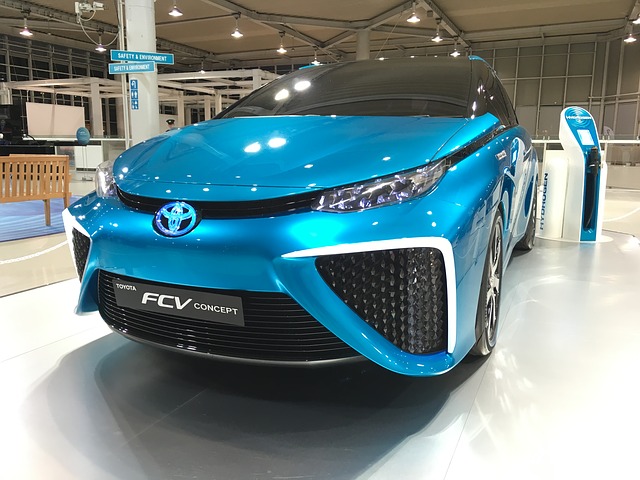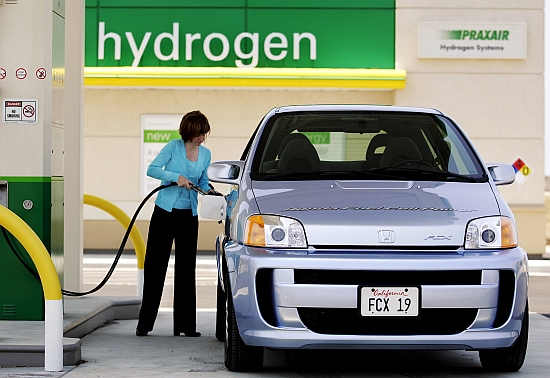Energy in the future
Electricity is great for many things – gadgets, lighting, control systems, computers.
BUT in the UK we can't generate enough electricity to recharge lots of electric cars and to run lots of electric heating systems.
AND the UK National Grid at the moment can't deliver the power that is needed to keep the country running on totally green energy.
PLUS wind and solar energy supplies are very unreliable and storing electricity is VERY difficult. Large batteries are currently difficult to build, bulky and use toxic metals – plus once you plug a number of houses into a large battery, the charge doesn’t last long. Elon Musk has suggested a 30 MW battery to supply 30,000 homes in Australia – which sounds great until you realise the battery only supplies these houses for HALF AN HOUR
THE ANSWER?
Firstly the UK needs to invest in a 'Smart Grid' where the electricity supply and demand is controlled and currents don't just flow in one direction from a power station to a customer.
Secondly the UK needs a better fuel to replace gas for our heating systems - this could be HYDROGEN.
Keep scrolling to find out more!

Hydrogen is the future
- Hydrogen is a very light gas which is TOTALLY clean to use
- Hydrogen could be burnt in your central heating boiler (instead of Natural Gas or methane) to provide zero pollution central heating
- Hydrogen could also be used in fuel cells in your home to provide clean electricity and heating (combined heat and power CHP)
- And hydrogen can be used create electricity (in fuel cells) to drive cars, vans, buses and trucks with ZERO POLLUTION.
Hydrogen could keep the UK warm
Hydrogen can be used for heating and cooking:
- UK is unique in having such an extensive gas grid - over 3500 km of gas pipes underground
- UK could repurpose our gas grid to transmit hydrogen to our homes
- UK could simply convert boilers and hobs to burn hydrogen instead of gas
Until 1960's the UK used Town Gas (half hydrogen) for its heating and cooking. We converted to Natural Gas (methane) when deposits of methane were discovered under the North Sea.
Each town in the UK is on a separate 'gas system' - because of the way that Town Gas was distributed. Converting each house in the UK to use hydrogen would be straight forward as it can be done town by town.
So we’ve converted everyone before!!!!
(Ask your grandparents)
Hydrogen for clean transport
Hydrogen Fuel Cells Cars
Hydrogen fuel cells generate electricity if fed with hydrogen (from a tank) and oxygen (from the air) and this electricity can drive vehicles.
- Hydrogen can power cars, vans, buses and trucks (batteries only really work for cars)
- Hydrogen vehicles are totally clean (zero pollution)
- Hydrogen cars are just like cars today - but clean! They are refuelled quickly and can travel 300 miles on 5kg hydrogen.

What will it take?
- UK needs very large scale hydrogen sources
- UK needs a national hydrogen filling station network
- Hydrogen cars already exist - see the Toyota Mirai

Where do we get hydrogen from?
- Hydrogen can be made by chemical reactions - not very clean so not ideal.
- Water can be electrolysed to make hydrogen e.g. using wind or solar electricity.
- Decarbonising natural gas - the UK's undersea and underground gas supplies (methane) can be 'decarbonised' to make clean hydrogen.
Decarbonising gas could provide UK's building materials!
Hydrogen: The perfect electricity storage system
Don't worry - hydrogen can be used safely.
Hydrogen gas is so light that, if there's a leak in a house, the hydrogen disperses quickly so can't create an explosion. And hydrogen fuel cell cars have Health and Safety experts checking their safety all the time.
Related Links
Hydrogen refuelling stations across the world
Refuelling hydrogen cars in the UK
ITMpower – a company that electrolyses water
Biggest Hydrogen Electrolysis plant to be built in Germany
Heating with Hydrogen [1][2][3]
Converting Leeds to run on hydrogen – H21 Leeds Citygate Project: Executive summary | Full report